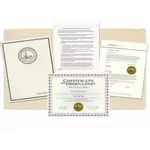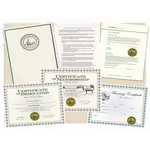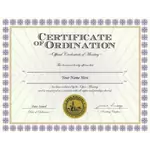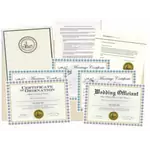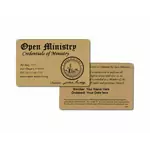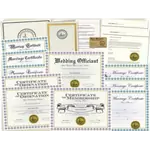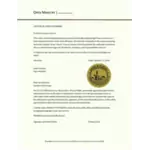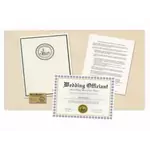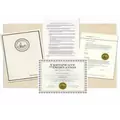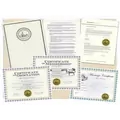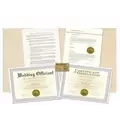Information on How to Get Ordained and Register as a Minister
How to get ordained and perform a wedding or ceremony in Tennessee.
Since 2010, Open Ministry has been ordaining and helping people all over the world perform weddings, ceremony and other sacerdotal duties. This page focuses on requirements and information for Tennessee, if you don't need the States Statues or ordination information for Tennessee scroll down to the bottom of the page for links to other states.
Let's get started with the information for Tennessee
If you are planning to get ordained in Tennessee or you have been asked to perform a wedding ceremony in Tennessee, or simply need to to find a minister in Tennessee to perform your wedding ceremony the information on this page will assist you. If you still have questions we invite you to visit our FAQ or contact us for more detailed information. We are here to help and support our ministers and congregation.
Registered Ministers with Open Ministry have successfully performed thousands of marriages in Tennessee and around the world!
The Ordination and Officiant information is provided below in an easy five step layout which is designed help walk you through the most common steps on registering to become a minister for Tennessee and how perform a wedding ceremony in Tennessee.
Step 1 - How to Become Ordained
How to get Ordained in Tennessee and become a minister to perform weddings and marriage ceremonies in Tennessee
Ordinations for Tennessee are completely free and can normally be completed in less than a day. Thousands of people have registered and became licensed ministers in Tennessee. Once you have completed the ordination process you are able perform marriages through Open Ministry in and for the state of Tennessee!
Become Ordained for free and start your journey as an authorized minister in Tennessee with Open Ministry.
Get started today by clicking on the link below!
Step 2 - Contact The County Clerk
How to Register to Officiate a Marriage in Tennessee
Next, contact the office of your local marriage authority (typically your county clerk in Tennessee). Let them know that you are a ordained minister with Open Ministry in California, and ask them what information the will require of you, to officiate a marriage in Tennessee. Most clerks and governing agencies may require that you present them with a physical copy of your ordination record.
When speaking with the county clerk; it can be helpful to use the following phrases.
- What agency or department issues marriage licenses in your county and how may I contact them?
- I am an ordained minister with a church in California and I would like to register as a wedding Officiant in your county to perform and solemnize weddings.
- I have my Letter of Good Standing and/or Ordination Credential as proof of my ministry and ordination.
- What additional documentation is required for me to register as a wedding Officiant in your county or state?
Step 3 - Getting Licensed to Perform the Marriage
License to perform a wedding in Tennessee
After you've contacted your marriage authority, you will want to visit our bookstore to get physical copies official credentials for presentation and your records. (See Tennessee State Statutes for More Specific Requirements )
When registering in Tennessee you may be asked to display proof of your ordination to the county clerk's before they will accept the marriage license as having been legally solemnized. We typically advise ministers of Tennessee to get a Complete Minister Package for Tennessee which includes your Letter of Good Standing (the live signed and notarized physical copy of your standing with our ministry).
Having your physical copies credentials provides peace-of-mind to couples and others that you intend to marry. Additionally, we recommend at least 4 weeks between the date of the wedding ceremony and your order, to ensure that you receive all of your materials and are able to register in time. Please note that every state and county can impose different requirements. This may include other nominal fees and additional paperwork that may need to be completed before the ceremony can take place.
It is important to note that some county clerks in Tennessee may require wedding officiants to attach a statement which asserts some of the elements in the marriage license upon submission, including the following:
- The time and location at which the wedding took place
- The names and places of residence of all official witnesses
- The religious organization in which the officiant is ordained
- The printed name and address of the officiant
Please note that, when filling out a marriage license, that Tennessee State may request you use the title "Minister" or "Reverend". The County Clerks may also require you enter your denomination, you can use "Non-Denominational". Failing to state a denomination may result in rejection and could require a duplicate marriage license.
Step 4 - How to Perform the Wedding
How to perform a wedding in Tennessee
Once you have completed of the above, you are ready to perform the wedding! Be sure that the couple has picked up their Tennessee state issued marriage license from the appropriate office. Tennessee marriage licenses valid for a set number of days, and there may be a waiting period between when the couple receives the marriage license in Tennessee and when the ceremony may be legally performed in Tennessee. This information should be written on the license and followed to ensure the ceremony is recorded properly.
Please be aware that the signed license must be returned to the issuing office in Tennessee before the time limit is reached. Check the marriage license for the exact dates. Once the the previous matters have been addressed, officiating a wedding in Tennessee can be a great and wonderful experience.
If you have any comments or issues as a wedding officiant in Tennessee, or after you have been ordained, or would like to just asking for guidance on how to perform a wedding ceremony in Tennessee. We recommend that all new Tennessee wedding ministers who have issues or concerns about the ceremony read over our helpful guides.
Tennessee
36-3-301 Persons who may solemnize marriages
(a) (1) All regular ministers, preachers, pastors, priests, rabbis and other spiritual leaders of every religious belief, more than eighteen (18) years of age, having the care of souls, and all members of the county legislative bodies, county mayors, judges, chancellors, former chancellors and former judges of this state, former county executives or county mayors of this state, former members of quarterly county courts or county commissions, the governor, the speaker of the senate and former speakers of the senate, the speaker of the house of representatives and former speakers of the house of representatives, the county clerk of each county and the mayor of any municipality in the state may solemnize the rite of matrimony. For the purposes of this section, the several judges of the United States courts, including United States magistrates and United States bankruptcy judges, who are citizens of Tennessee are deemed to be judges of this state. The amendments to this section by Acts 1987, ch. 336, which applied provisions of this section to certain former judges, do not apply to any judge who has been convicted of a felony or who has been removed from office.
(2) In order to solemnize the rite of matrimony, any such minister, preacher, pastor, priest, rabbi or other spiritual leader must be ordained or otherwise designated in conformity with the customs of a church, temple or other religious group or organization; and such customs must provide for such ordination or designation by a considered, deliberate, and responsible act.
(3) If any marriage has been entered into by license issued pursuant to this chapter at which any minister officiated before June 1, 1999, such marriage shall not be invalid because the requirements of the preceding subdivision (2) have not been met.
(b) The traditional marriage rite of the Religious Society of Friends (Quakers), whereby the parties simply pledge their vows one to another in the presence of the congregation, constitutes an equally effective solemnization.
(c) Any gratuity received by a county mayor, county clerk or municipal mayor for the solemnization of a marriage, whether performed during or after such person's regular working hours, shall be retained by such person as personal renumeration for such services, in addition to any other sources of compensation such person might receive, and such gratuity shall not be paid into the county general fund or the treasury of such municipality.
(d) If any marriage has been entered into by license regularly issued at which a county executive officiated prior to April 24, 1981, such marriage shall be valid and is hereby declared to be in full compliance with the laws of this state.
(e) For the purposes of this section, "retired judges of this state" is construed to include persons who served as judges of any municipal or county court in any county that has adopted a metropolitan form of government and persons who served as county judges (judges of the quarterly county court) prior to the 1978 constitutional amendments.
(f) If any marriage has been entered into by license regularly issued at which a retired judge of this state officiated prior to April 13, 1984, such marriage shall be valid and is hereby declared to be in full compliance with the laws of this state.
(g) If any marriage has been entered into by license issued pursuant to this chapter at which a judicial commissioner officiated prior to March 28, 1991, such marriage is valid and is declared to be in full compliance with the laws of this state.
(h) The judge of the general sessions court of any county, and any former judge of any general sessions court, may solemnize the rite of matrimony in any county of this state. Any marriage performed by any judge of the general sessions court in any county of this state before March 16, 1994, shall be valid and declared to be in full compliance with the laws of this state.
(i) All elected officials and former officials, who are authorized to solemnize the rite of matrimony pursuant to the provisions of subsection (a), may solemnize the rite of matrimony in any county of this state.
(j) If any marriage has been entered into by license issued pursuant to this chapter at which a county mayor officiated outside such mayor's county prior to May 29, 1997, such marriage is valid and is declared to be in full compliance with the laws of this state.
Title 36: Domestic Relations - Chapter 3: Marriage - Part 3: Ceremony
[Code 1858, § 2439 (deriv. Acts 1778, ch. 7, § 2; 1845-1846, ch. 145, § 7); Acts 1879, ch. 98, § 1; 1889, ch. 134, § 1; Shan., § 4189; Code 1932, § 8412; Acts 1949, ch. 251, § 4; C. Supp. 1950, § 8412; Acts 1970, ch. 440, § 1; 1973, ch. 66, § 3; impl. am. Acts 1978, ch. 934, § 7; Acts 1979, ch. 87, § 1; 1981, ch. 211, §§ 1, 2; 1983, ch. 331, §§ 1, 2; T.C.A. (orig. ed.), § 36-415; Acts 1984, ch. 516, § 1; 1987, ch. 146, § 1; 1987, ch. 336, §§ 4, 5; 1988, ch. 471, §§ 1, 2; 1991, ch. 86, § 1; 1992, ch. 911, § 1; 1993, ch. 50, § 1; 1994, ch. 619, § 1; 1995, ch. 94, § 1; 1995, ch. 128, § 1; 1997, ch. 295, §§ 1, 2; 1998, ch. 745, §§ 1, 2; 1999, ch. 526, § 1; 2003, ch. 90, § 2; 2003, ch. 376, § 3; 2005, ch. 21, § 1.]

